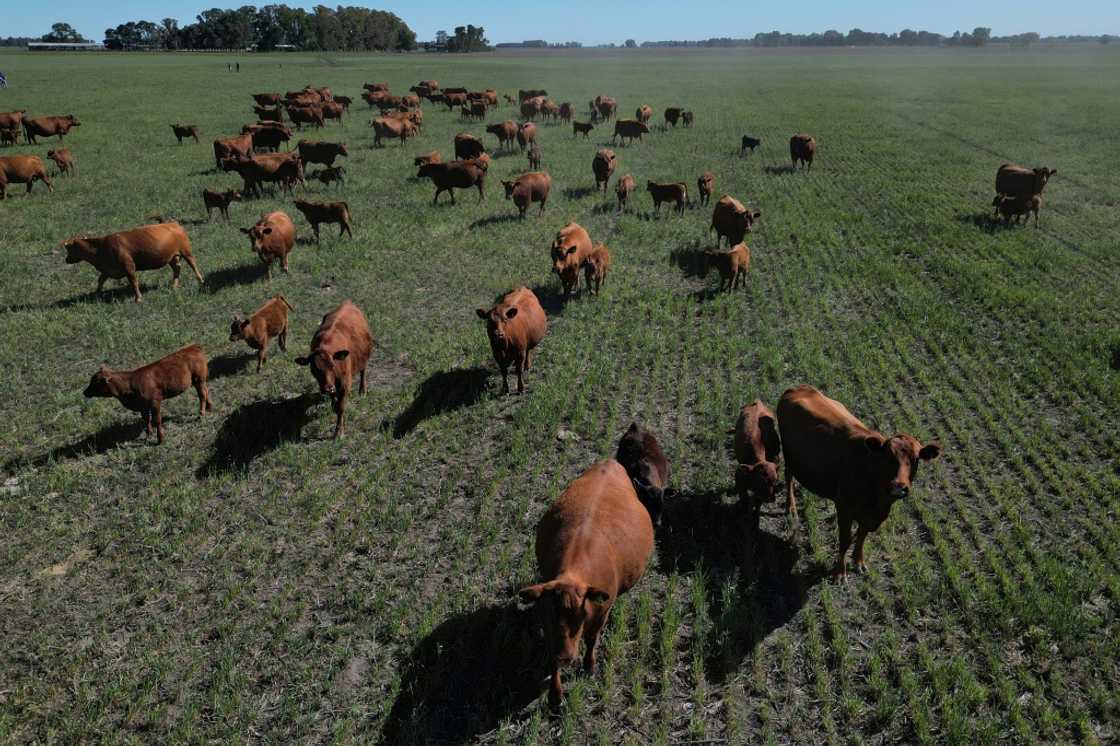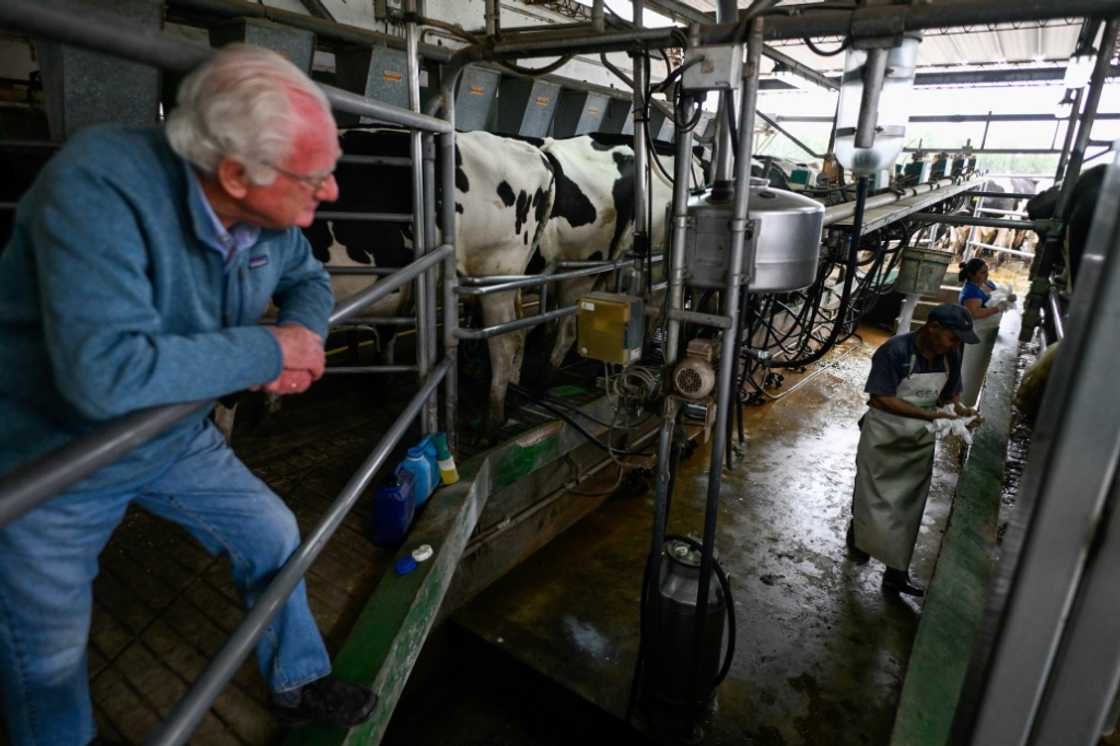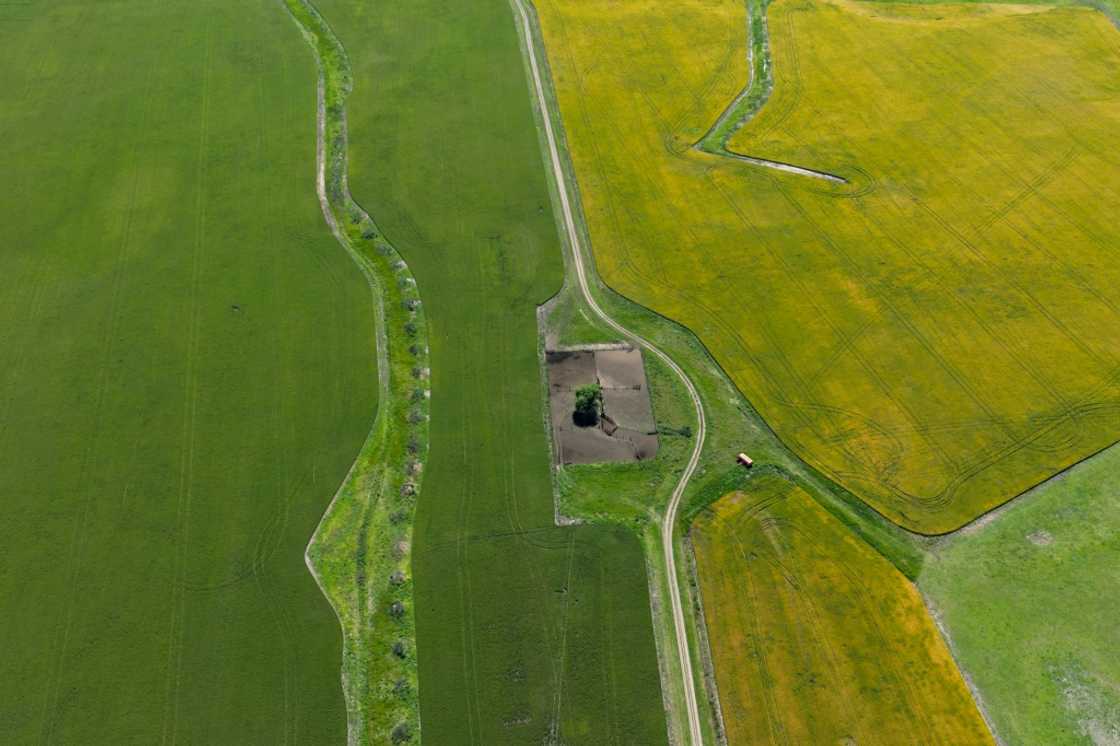Argentina's fed-up farmers lean towards outsider Milei

Source: AFP
Argentine livestock salesman Pablo Cicare stands among a herd of Angus cows, source of some of the world's finest beef, that he dreams of being able to freely export after Sunday's presidential election.
Here in the pampas, Argentina's vast and fertile grasslands that stretch as far as the eye can see, farmers are fed up with excessive government controls and taxes that have long choked the agricultural industry.
"Business is very complicated. The government has trampled on farmers for so many years. Farmers need to be able to export freely," said Cicare.
He preferred not to say who he would vote for, but in Saladillo, 200 kilometers (125 miles) from the capital Buenos Aires, libertarian outsider Javier Milei led the first-round election. His rival, Economy Minister Sergio Massa, trailed in third place.
Nationally, Massa scored the most votes, despite overseeing annual inflation of 143 percent, and the runoff is expected to be tight.
The dire state of the economy is the main concern of voters weary of repeated fiscal crises, inflation and currency controls.

Source: AFP
To control inflation, the government limits the export of agricultural products and strictly controls the exchange rate at which producers can sell their goods abroad.
"I am going to vote for Javier Milei, because I agree with his ideas of more freedom... and letting the market regulate the economy," said 80-year-old dairy and wheat farmer Maximo Russ, near the city of Junin.
"If the entire system is liberalized, exports are opened up, and Argentina opens up to the world ... logically there will be investment, and there will be much more production, and the country will grow much more."
'The lesser evil'
Aside from its famed grass-fed beef, of which it is one of the world's biggest producers, Argentina is also a major exporter of soybean products and wheat.
Agriculture contributes up to 25 percent of the country's gross domestic product.

Source: AFP
After the country's worst drought in a century saw agricultural exports plummet, leading to a shortfall of $20 billion in revenue, the industry is expecting an excellent harvest in 2024.
Some fear this boom will lead to even more taxes if Massa wins.
While some in the industry are confident in their choice of the eccentric free-market outsider Milei, who has also said he will get rid of the central bank and dollarize the economy, others, like Cicare, are merely choosing "the lesser evil."
Political expert Carlos Germano said the agriculture sector found it "very difficult to trust the policies of the ruling party... what the agricultural sector is asking for is predictability."
Historian Roy Hora said Milei's policies provided some with the belief that there could be "a kind of light at the end of the tunnel."

Source: AFP
However, the sparsely populated countryside does not have a huge impact on the outcome of the vote, he said.
And some in the industry are leaning towards Massa as the best option.
"I am so sick of politics," said field manager Javier Sunblad, overlooking a field of wheat and 400 head of cattle.
"I don't like either of them. I like Milei the least."
New feature: Сheck out news that is picked for YOU ➡️ click on “Recommended for you” and enjoy!
Source: AFP




